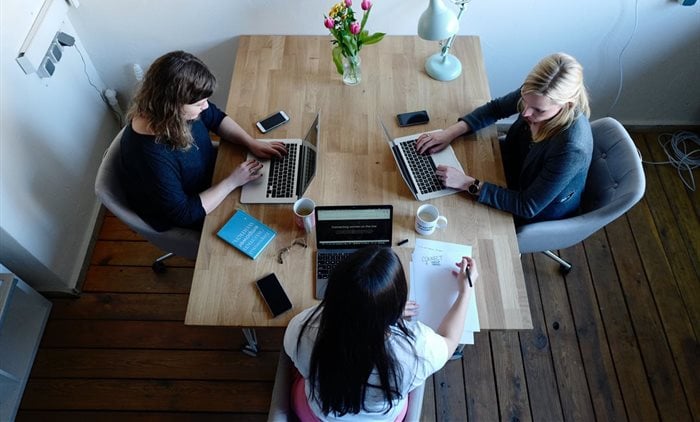Celebrating the resilience of women-owned businesses in SA

According to the upcoming Global State of Small Business report, women-led small businesses faced more closures and lower sales performance than businesses led by men, with 25% of women-led businesses and 17% of men-led businesses reporting closures.
Beyond this, the report also found that women were not as optimistic about the future of their business as their male peers. And, the results of a survey from the Cherie Blair Foundation for Women showed that one in 10 respondents in low- and middle-income countries said the impact of the pandemic was the single greatest challenge they had ever faced.
Women-led SMBs deserve a level playing field
Prior to the pandemic, women entrepreneurs already faced more obstacles than their male peers when launching a business, from finding mentors to raising capital. Now, with the negative impacts of the Covid -19 pandemic compounding these barriers to entry, the need to promote gender equality and drive economic empowerment among women-led businesses is more important than ever.
This is why throughout Women’s history month, Meta is celebrating and supporting women small business leaders who go beyond. Women who push beyond biases to prove they are capable of the extraordinary and who rise beyond resilience to reinvent themselves, embrace innovation and reach new heights of achievement.
Women-led SMBs inspire, every day
While this is a challenging time, we are inspired every single day by the astonishing resilience of women business owners. So, for International Women’s Day and throughout the month of March, we are celebrating the grit and resilience from women entrepreneurs across South Africa.
Since 2021, 56.71% of Facebook groups related to entrepreneurship have been created by women. While 36.59% of Spark AR creators publishing effects for Facebook and Instagram are women. And, despite tough pandemic-related conditions, female entrepreneurs in South Africa have been busy.
We recorded a 46.58% increase in the number of South African businesses on Instagram that identify as women-owned since the start of Covid-19. And an impressive 42.3% of local women-led businesses on Facebook were established since or during the pandemic. Additionally, more than 53.91% of women-led business Pages were set up during the pandemic.
We will shine a light on the business and community leaders across the region who are driving positive social impact through our platforms. This includes the stories of Janine Kom, owner of Education Expression, Katlego Success Moremi, owner of Boikago Cleaning and Laundry Service and Mantsha Pheeha, owner of Mantsha.com.
Women-led SMBs deserve a supportive community
We remain committed to supporting women entrepreneurs around the world by helping them unlock their potential, creating a more resilient, inclusive and equal society. One of the key pillars of our #SheMeansBusiness program is to cultivate the growth of women-owned small businesses by providing access to curated education and training so that women can not only grow their businesses but thrive.
Research has shown that women-led businesses tend to have weaker economic performance are often smaller and less profitable than businesses owned by male peers, grow more slowly and have high closure rates. For example, from July 2021 to January 2022, the number of women-led businesses engaging in operational or revenue-generating activities in South Africa dropped from 68% to 61%.
This is in contrast to the average for men-led businesses where activities for the same period increased from 73% to 74%. We are also trailing the women-led global average of 75%.To this end, we have focused on helping women-led businesses gain financial resilience and literacy through our #SheMeansBusiness program.
Our program aims to connect women-owned small businesses with each other and with organisations that support their success. Seeing as women are more likely than men to be pushed into entrepreneurship due to economic necessity such as lack of jobs or insufficient family income.
We believe that fostering communities of women business owners can help them receive encouragement and camaraderie from like-minded peers.
Women-led SMBs can be resilient, if given the right support and connectivity
Lastly, we believe it is essential that we celebrate the grit and resilience of women-owned businesses through inspiring influencers and uplifting stories. After all, many of these companies have been some of the hardest hit by the pandemic especially those in the women-dominated service industries including tourism, hospitality, fashion and retail sectors.
Many of these sectors were forced to shut down and, as a result, women were often shifted into new and unrelated industries. Apart from navigating a new work environment, some of these women carry the additional burden of working from home, taking care of their families and adding even more for them to manage day-to-day.
Women-led SMBs are essential
This women’s history month, cultivating resilience in all forms structural, financial, educational and emotional is the need of the hour.
At Meta, we believe women-led businesses are vital to the broader economy and that cultivating resilience depends on the collaborative efforts of shareholders SMBs, policymakers and communities to help all women-led businesses improve, adapt and overcome the challenges they face.
As the economies around the world work toward recovery and it is imperative that women-led SMBs are not left behind. These savvy business leaders deserve the support and opportunities required to help them flourish.




